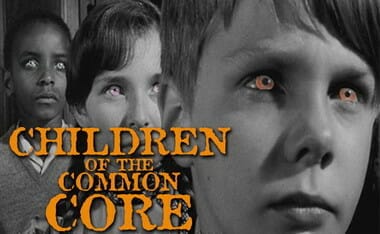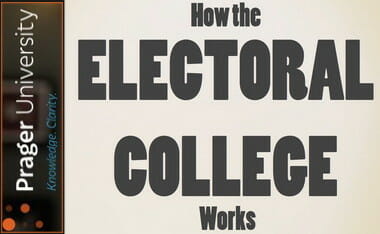- “…the possibility that the [Constitutional Republic] in which we live provides us with opportunities for [representation] that… exceed those provided by primitive orders to far fewer people should not be dismissed.”
I wanted to edit/adapt the above HAYEK quote to fit the broader idea that what our Founders created is the most fair to the most people. I will include the larger quote at the end, in context, as, it has nothing to do with what I adapted it to. As I was reading this section of “The Fatal Conceit: The Errors of Socialism,” I thought of the attempt by Democrats to do away with the Electoral College. Which immediately brought to mind that MORE voters will be disenfranchised if it is eliminated. Why? Because the popular vote could be won by almost 4-states alone: California, Texas, Florida, New York. So, let’s take the most recent election as an example:
- The Democrat outpaced President-elect Donald Trump by almost 2.9 million votes, with 65,844,954 (48.2%) to his 62,979,879 (46.1%), according to revised and certified final election results from all 50 states and the District of Columbia. (CNN)
In the Electoral College world, the smaller states had a say and 2.9 million voters were “disenfranchised,” so-to-speak. In a direct democracy, which our Founders specifically wrote against, all a candidate would have to do is campaign in about 11-cities to win the election.
Thus, the disenfranchisement of the voter would be closer to 60-million.
ArticleIV, Section4 of the Constitution reads:
- “The United States shall guarantee to every state in this union a republican form of government…“
And since we know the Founders intent in delineating between a “democracy” and a “constitutional republic”….
- James Madison (fourth President, co-author of the Federalist Papers and the “father” of the Constitution) – “Democracies have ever been spectacles of turbulence and contention; have ever been found incompatible with personal security, or the rights of property; and have, in general; been as short in their lives as they have been violent in their deaths.”
- John Adams (American political philosopher, first vice President and second President) – “Remember, democracy never lasts long. It soon wastes, exhausts, and murders itself. There never was a democracy yet that did not commit suicide.”
- Benjamin Rush (signer of the Declaration) – “A simple democracy… is one of the greatest of evils.”
- Fisher Ames (American political thinker and leader of the federalists [he entered Harvard at twelve and graduated by sixteen], author of the House language for the First Amendment) – “A democracy is a volcano which conceals the fiery materials of its own destruction. These will provide an eruption and carry desolation in their way.” / “The known propensity of a democracy is to licentiousness [excessive license] which the ambitious call, and the ignorant believe to be liberty.”
- Governor Morris (signer and penman of the Constitution) – “We have seen the tumult of democracy terminate… as [it has] everywhere terminated, in despotism…. Democracy! Savage and wild. Thou who wouldst bring down the virtuous and wise to thy level of folly and guilt.”
- John Quincy Adams (sixth President, son of John Adams [see above]) – “The experience of all former ages had shown that of all human governments, democracy was the most unstable, fluctuating and short-lived.”
- Noah Webster (American educator and journalist as well as publishing the first dictionary) – “In democracy… there are commonly tumults and disorders….. therefore, a pure democracy is generally a very bad government. It is often the most tyrannical government on earth.”
- John Witherspoon (signer of the Declaration of Independence) – “Pure democracy cannot subsist long nor be carried far into the departments of state – it is very subject to caprice and the madness of popular rage.”
- Zephaniah Swift (author of America’s first legal text) – “It may generally be remarked that the more a government [or state] resembles a pure democracy the more they abound with disorder and confusion.”
AMERICAN THINKER puts it this way:
Jefferson put it this way:
What has destroyed liberty and the rights of man in every government which has ever existed under the sun? The generalizing and concentrating all cares and powers into one body.
And Lord Acton put it this way:
Liberty consists in the division of power. Absolutism, in concentration of power.
[….]
To become president of the United States of America, one must even today win the national election state by state. Eliminating the Electoral College and electing the president by the popular vote, as the progressives are determined to do, would transform the office. Its occupant would in effect become the president of the big cities of America, and the last vestiges of political autonomy guaranteed the individual states by the Constitution’s electoral system would be swept away.
SEE MY:
Here is the fuller quote by Hayek as promised:
Nevertheless, the possibility that the evolved order in which we live provides us with opportunities for happiness that equal or exceed those provided by primitive orders to far fewer people should not be dismissed (which is not to say that such matters can be calculated). Much of the `alienation’ or unhappiness of modern life stems from two sources, one of which affects primarily intellectuals, the other, all beneficiaries or material abundance. The first is a self-fulfilling prophecy of unhappiness for those within any ‘system’ that does not satisfy rationalistic criteria oi conscious control. Thus intellectuals from Rousseau to such recent figures in French and German thought as Foucault and Habermas regard alienation as rampant in any system in which an order is `imposed’ on individuals without their conscious consent; consequently, their followers tend to find civilisation unbearable — by definition, as it were. Secondly, the persistence of instinctual feelings of altruism and solidarity subject those who follow the impersonal rules of the extended order to what is now fashionably called ‘bad conscience’; similarly, the acquisition of material success is supposed to be attended with feelings of guilt (or ‘social conscience’). In the midst of plenty, then, there is unhappiness not only born of peripheral poverty, but also of the incompatibility, on the part of instinct and of a hubristic reason, with an order that is of a decidedly non-instinctive and extra-rational character.
F.A. Hayek, ed. W.W. Bartley III, The Fatal Conceit: The Errors of Socialism (Chicago, IL: University of Chicago Press, 1988), 64.




